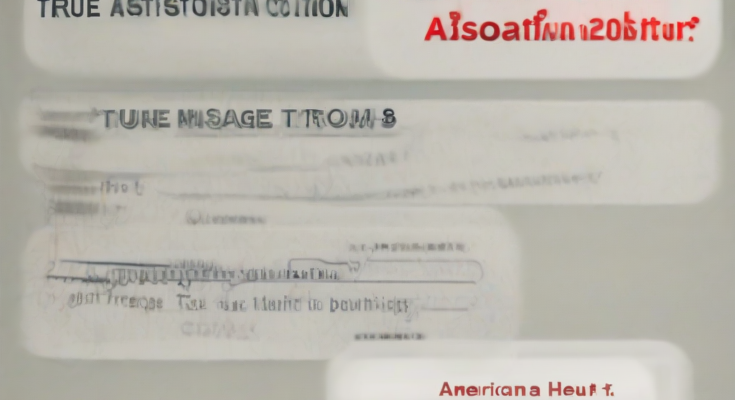Fueling the Fight: A Deep Dive into American Heart Association Donations and Their Impact
The American Heart Association (AHA) stands as a beacon of hope in the relentless battle against cardiovascular diseases. Its tireless efforts in research, education, and advocacy are fueled by the generosity of millions of donors, individuals and organizations alike, who contribute to its crucial mission. Understanding the significance of these donations, their varied forms, and the profound impact they have on countless lives is paramount. This comprehensive exploration delves into the world of AHA donations, revealing the multifaceted ways in which they transform lives and shape the future of cardiovascular health.
The Vital Role of Donations in AHA’s Mission
The AHA’s mission to be a relentless force for a world of longer, healthier lives is ambitious and requires substantial resources. Government funding alone is insufficient to cover the breadth and depth of the AHA’s programs. Donations represent a critical lifeline, providing the necessary financial backing for a wide range of initiatives, from groundbreaking research to life-saving community programs. These contributions empower the AHA to:
- Fund Cutting-Edge Research: Donations directly support scientists and researchers working at the forefront of cardiovascular disease prevention and treatment. This includes studies on risk factors, innovative therapies, and improved diagnostic tools.
- Develop and Implement Public Health Programs: Funding helps create and implement community-based programs aimed at promoting heart-healthy lifestyles, providing education on risk factors, and increasing access to vital healthcare services.
- Advocate for Policy Changes: Donations enable the AHA to advocate for policies that support cardiovascular health at the local, state, and national levels, promoting healthier environments and access to healthcare.
- Educate the Public: The AHA utilizes donations to develop and disseminate educational materials, raise awareness about cardiovascular risks, and empower individuals to take control of their heart health.
- Provide Support for Survivors and Families: Donations fund support programs and resources for individuals affected by cardiovascular disease, providing emotional and practical assistance during challenging times.
Types of Donations to the American Heart Association
The AHA welcomes donations in various forms, providing donors with flexibility and opportunities to contribute according to their means and preferences:
- One-time Donations: Individuals can make a single donation of any amount, contributing directly to the AHA’s general fund or specifying a particular program or research area.
- Recurring Donations: Monthly or annual recurring donations provide consistent and predictable funding, enabling the AHA to plan long-term strategies and initiatives.
- Memorial or Tribute Gifts: Donors can honor loved ones by making donations in their memory or in celebration of their lives. This provides comfort to grieving families while supporting the AHA’s mission.
- Corporate Sponsorships: Companies can partner with the AHA through corporate sponsorships, contributing significant funding to specific programs or events.
- Planned Giving: Individuals can include the AHA in their estate plans through bequests, trusts, or other planned giving arrangements, providing substantial long-term support.
- Fundraising Events: Participation in or organization of fundraising events, such as walks, runs, and cycling events, generates substantial funds for the AHA.
- In-Kind Donations: Donations of goods and services, such as office supplies or volunteer time, can significantly reduce the AHA’s operational costs.
The Impact of Donations: Transforming Lives and Shaping the Future
The cumulative impact of donations to the AHA is immeasurable. These contributions translate into tangible results that save and improve lives across the nation:
- Reduced Mortality Rates: AHA-funded research has led to groundbreaking advancements in treatment and prevention, resulting in lower mortality rates from heart disease and stroke.
- Improved Patient Outcomes: Innovative therapies and improved diagnostic tools, made possible through donations, have enhanced the quality of life for millions of cardiovascular disease patients.
- Increased Public Awareness: Educational programs funded by donations have raised public awareness of cardiovascular risks, empowering individuals to make healthier choices and reduce their risk.
- Enhanced Community Support: Community-based programs provide vital resources and support to individuals affected by cardiovascular disease, improving their access to care and quality of life.
- Advocacy for Policy Change: The AHA’s advocacy efforts, supported by donations, have led to policy changes that promote cardiovascular health and improve access to care.
- Empowered Communities: AHA-funded initiatives strengthen communities by fostering healthier lifestyles and providing resources for preventative care.
Transparency and Accountability in AHA’s Use of Donations
The AHA maintains a strong commitment to transparency and accountability in the management and use of donated funds. Detailed financial reports are publicly available, outlining how donations are allocated to various programs and initiatives. This transparency ensures that donors have confidence in the responsible stewardship of their contributions. Independent audits further reinforce the AHA’s commitment to financial integrity.
Ways to Donate to the American Heart Association
Donating to the AHA is simple and convenient. Individuals can contribute online through the AHA’s website, by mail, or by phone. The website provides detailed information on donation options, allowing donors to choose the method that best suits their needs. The AHA’s commitment to secure online transactions ensures the safety and privacy of donor information.
The Ongoing Need for Support
Despite significant advancements, cardiovascular diseases remain a leading cause of death and disability worldwide. The need for continued research, education, and advocacy remains critical. Every donation, regardless of size, makes a tangible difference in the fight against these devastating conditions. The AHA relies on the continued generosity of individuals and organizations to fuel its mission and continue its life-saving work. By supporting the AHA, donors become active participants in a movement that is transforming lives and shaping a healthier future for all.
Beyond Monetary Contributions: Volunteering and Advocacy
The impact of supporting the AHA extends beyond monetary contributions. Volunteers play a crucial role in various AHA initiatives, from organizing fundraising events to providing direct support to patients and their families. Advocating for heart health within your communities, sharing information about preventative measures, and promoting AHA resources can significantly amplify the organization’s reach and effectiveness. This collective action, combined with financial contributions, forms a powerful force for change in the fight against cardiovascular disease.
The Future of Cardiovascular Health: A Collaborative Effort
The future of cardiovascular health hinges on a collaborative effort involving researchers, healthcare professionals, policymakers, and the community at large. The AHA acts as a central hub, uniting these diverse stakeholders to work towards a shared goal: a world free from the burden of cardiovascular diseases. Donations serve as the catalyst for this collaboration, providing the resources necessary to drive innovation, implement effective programs, and advocate for policy changes that benefit all. The commitment of donors is not merely a financial contribution; it is an investment in a healthier future for generations to come.



